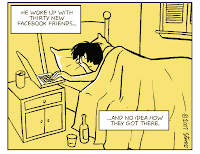
With Pesach approaching many will be spending long hours cleaning floors, shifting crockery, and wiping down surfaces. All these activities put a strain on the back and if done incorrectly may lead to damage.
A bit of anatomy:
The spine consists of many little bones called vertebrae, shaped according to the job they have to perform. Between each vertebra is a disc. Discs are similar in structure to jelly donuts - an outer shell made of tough cartilage, surrounding a fluid called the nucleus pulposis. Discs consist surprisingly of 90 % water yet they are able to resist enormous amounts of stress and strain. Finally the spine is packed together with ligaments and muscles, giving it strength and flexibility.
Damage to the spine:
Damage can occur to any of the structures listed above. To avoid injuring the back one should follow some basic steps.
Avoid bending and twisting simultaneously as one might do whilst cleaning a bath, making a bed or loading a suitcase into the back of a car. It multiplies the stress through the spine and typically causes a slipped disc at the worst, and a muscular tear at best.
When lifting or lowering a weight, bend your knees while squatting and let the strong muscles of your legs do the work not the small muscles of your back.
Keep the weight of what you are carrying close to the body. If you are moving pots and plates from shelf to shelf try to hold the weight close to you. The further away the weight is from the body's center of gravity the more effort is required of the muscles and more risk of injury.
Try to avoid stooping for long periods such as leaning over the sink to wash dishes or over the kitchen table. Try and get into the habit of transmitting your body weight onto the table or basin as this relieves stress from the back muscles which will otherwise fatigue and give pain.
Stop:
Stop and think about what you are about to do. Injuries often occur because of rushed activity; behaving in a way unsuitable for the body and eventually causing strain.
Rest:
As muscles fatigue they become less efficient and less protective. Pushing oneself beyond fatigue will eventually take its toll. Breaks should be taken after 45 minutes of work. I advise lying on one's back on a carpeted floor or on a towel, knees bent at 90 degrees with calf muscles resting on a chair or sofa. Place a telephone book under the head. Rest arms on the belly, no distractions other than music. This allows the spine to return to neutral and the surrounding muscles to relax. Stay in this position for approximately 12 minutes – it is a great way to revive one's energy.
A bit of anatomy:
The spine consists of many little bones called vertebrae, shaped according to the job they have to perform. Between each vertebra is a disc. Discs are similar in structure to jelly donuts - an outer shell made of tough cartilage, surrounding a fluid called the nucleus pulposis. Discs consist surprisingly of 90 % water yet they are able to resist enormous amounts of stress and strain. Finally the spine is packed together with ligaments and muscles, giving it strength and flexibility.
Damage to the spine:
Damage can occur to any of the structures listed above. To avoid injuring the back one should follow some basic steps.
Avoid bending and twisting simultaneously as one might do whilst cleaning a bath, making a bed or loading a suitcase into the back of a car. It multiplies the stress through the spine and typically causes a slipped disc at the worst, and a muscular tear at best.
When lifting or lowering a weight, bend your knees while squatting and let the strong muscles of your legs do the work not the small muscles of your back.
Keep the weight of what you are carrying close to the body. If you are moving pots and plates from shelf to shelf try to hold the weight close to you. The further away the weight is from the body's center of gravity the more effort is required of the muscles and more risk of injury.
Try to avoid stooping for long periods such as leaning over the sink to wash dishes or over the kitchen table. Try and get into the habit of transmitting your body weight onto the table or basin as this relieves stress from the back muscles which will otherwise fatigue and give pain.
Stop:
Stop and think about what you are about to do. Injuries often occur because of rushed activity; behaving in a way unsuitable for the body and eventually causing strain.
Rest:
As muscles fatigue they become less efficient and less protective. Pushing oneself beyond fatigue will eventually take its toll. Breaks should be taken after 45 minutes of work. I advise lying on one's back on a carpeted floor or on a towel, knees bent at 90 degrees with calf muscles resting on a chair or sofa. Place a telephone book under the head. Rest arms on the belly, no distractions other than music. This allows the spine to return to neutral and the surrounding muscles to relax. Stay in this position for approximately 12 minutes – it is a great way to revive one's energy.
